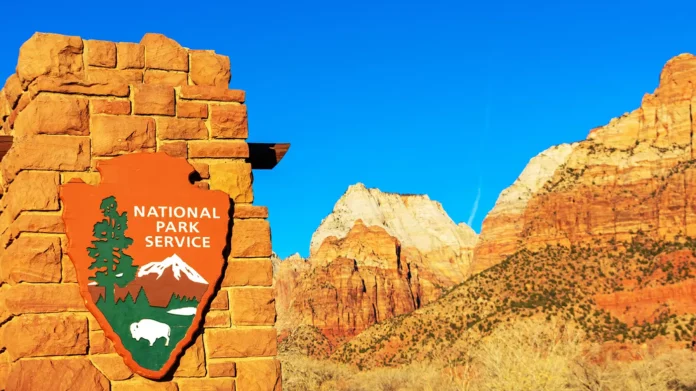President Trump’s proposed cuts to the National Park Service (NPS) have caused quite a stir among Republicans. The administration has suggested a 30 percent cut to the park service’s operations and staffing budgets, which has sparked concerns among conservationists and outdoor enthusiasts alike. But, surprisingly, it’s not just Democrats who are speaking out against these proposed cuts – some Republicans are also voicing their disapproval.
The NPS is responsible for managing and protecting the nation’s most treasured natural and cultural resources. From national monuments to historic sites, the NPS plays a crucial role in preserving our country’s heritage and providing opportunities for Americans to connect with nature. That’s why President Trump’s proposed cuts have left many wondering about the future of our national parks.
One of the main reasons for the proposed cuts is to reduce government spending and decrease the national deficit. While this is a valid concern, it’s important to consider the impact these cuts could have on our national parks. The NPS already operates on a shoestring budget, and any reduction in funding could have severe consequences.
The proposed budget also calls for transferring some park service sites to the states, which has caused particular unease among Republicans. This provision suggests that the responsibility for managing these sites would fall on the states, potentially putting them at risk of being sold to private interests for development. This goes against the core principles of the Republican party, which values limited government intervention and protection of public lands.
In addition to the potential loss of these precious lands, the proposed cuts to staffing and operations could also have a ripple effect on local communities. National parks not only provide recreational opportunities for visitors, but they also generate significant economic benefits for nearby towns and cities. According to a study by the NPS, in 2018, national parks contributed $41.7 billion to the US economy and supported 340,500 jobs. Cutting funding to the NPS could result in job losses and economic hardship for these communities.
Moreover, the proposed cuts could have a detrimental impact on the environment. National parks are crucial for preserving biodiversity and protecting endangered species. With reduced funding, the NPS may struggle to adequately manage and protect these natural habitats, leading to irreversible damage.
Fortunately, not all Republicans support the proposed cuts to the NPS. In fact, some have been quite vocal about their opposition. For example, Senator Lisa Murkowski from Alaska, a well-known Republican who chairs the Senate Energy and Natural Resources Committee, has expressed her concerns about the cuts, stating that it would severely harm the NPS’s ability to provide visitors with quality experiences.
Other Republican politicians, such as Senator Cory Gardner from Colorado and Representative Elise Stefanik from New York, have also spoken out against the proposed cuts. They have stressed the importance of preserving our national parks and the need for adequate funding to ensure their protection and maintenance.
It’s clear that these proposed cuts to the NPS have sparked bipartisan concerns. And while the Trump administration may view this as a cost-cutting measure, it’s important to remember the value that national parks hold for all Americans. Our national parks are an integral part of our country’s identity, and we cannot afford to let them fall into disrepair.
It’s heartening to see that some Republicans are standing up for the NPS and its mission. It’s a testament to the fact that protecting our natural and cultural heritage should not be a partisan issue. Instead, it should be a shared responsibility and a priority for all Americans.
In conclusion, President Trump’s proposed cuts to the NPS have caused significant concern among both Democrats and Republicans. The potential consequences of these cuts, such as loss of public lands, economic hardship, and environmental damage, are too great to ignore. It’s time for all politicians, regardless of party affiliation, to come together and prioritize the protection of our national parks for the benefit of all Americans. After all, our national parks represent the best of America and must be preserved for future generations to enjoy.

